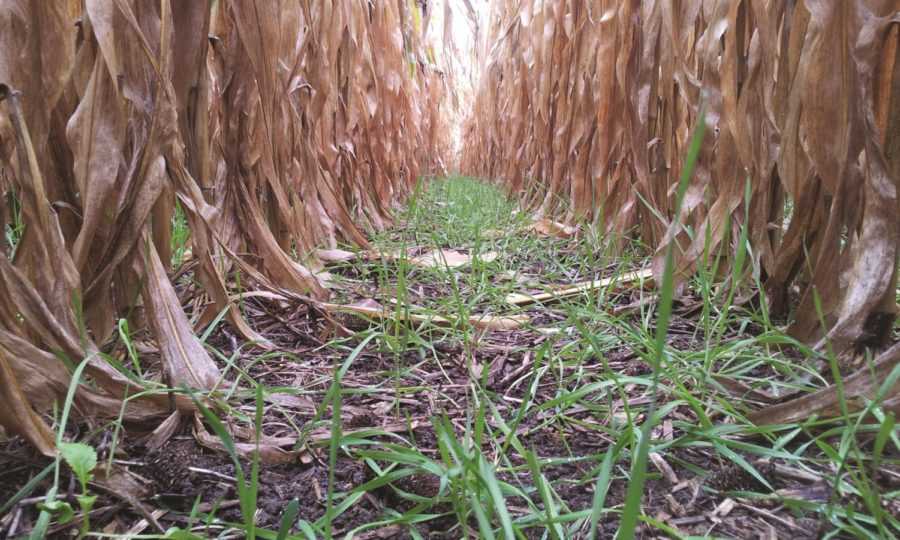Project seeks new agricultural systems to prepare for climate change
February 4, 2014
Resilient agriculture, even in the face of climate change: That’s the ultimate goal of the Sustainable Corn project at Iowa State.
In a large collaborative effort, over 150 team members have been working on ways to improve sustainability and resilience of agricultural systems in the Midwest.
The members come from nine Midwestern universities, including Minnesota, Illinois and Wisconsin. A third of the members, however, come from Iowa State.
“The United States Department of Agriculture (USDA) identified that, as a nation, we’re not ready for climate change in terms of our agricultural systems,” said Lori Abendroth, program manager in sociology – AGLS.
The USDA noted the need for research and extension and decided to put major funding behind the initiatives that address climate change, Abendroth said.
“We try and help to make systems more resilient, so that the systems can still perform well, even though the environment is becoming more and more difficult for the crops.”
Abendroth said she had a personal interest in becoming the project manager for this new project because of her background.
“I’m from a family farm in Nebraska,” Abendroth said. “We’ve grown grain crops and so I experienced the impact of weather variability myself.”
In case of weather extremes, farmers need to adapt really quickly, Abendroth said. Most of the latest weather extremes can be attributed to the effects of climate change.
“To solve the issue, we’re working with vast field research, data and climate models to predict weather changes,” said Lynn Laws, communications specialist in sociology – AGLS.
The project also utilizes a lot of graduate students from Iowa State to provide them with work experience in agriculture that helps them to apply for future jobs, Laws said.
“The grad students are really committed and motivated to become the scientists of a new generation,” Laws said. “It’s thanks to their dedication that we’re able to move forward so fast.”
One of these grad students is Linda Geiger, graduate assistant for research in agricultural and biosystems engineering, who entered the project this year.
“It’s a really cool project,” Geiger said. “There are a lot of collaborators and, as a result, a lot of expertise from different areas, which gives you a really broad view on the topic.”
Geiger said she likes that the research is directly applied and distributed to producers.
“It’s not just academic content, but you do something with it and that was very important to me,” Geiger said.
The project affects not only farmers and their families, but is important for everyone, even everyday students, who think they have no connection to agriculture at all, Abendroth said.
“Climate change is one of the challenges that we face in society as a whole,” Abendroth said. “It has effects on our resources since the production of the food is going to be more difficult.”
Abendroth said that people tend to go to the grocery store and have everything available for a certain price.
“They expect a certain quality, but there are all these other complex ecosystems and production systems behind all of it in the background,” Abendroth said.

















